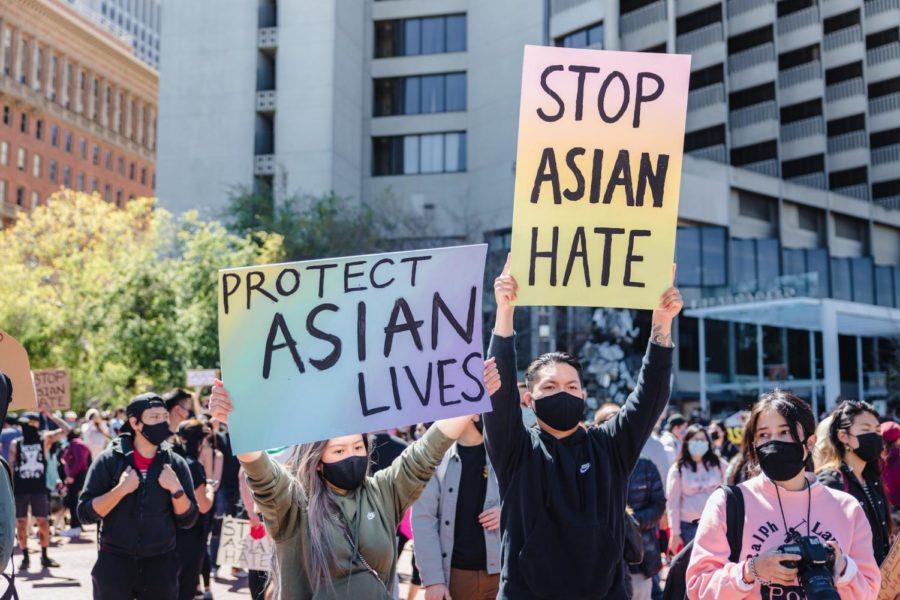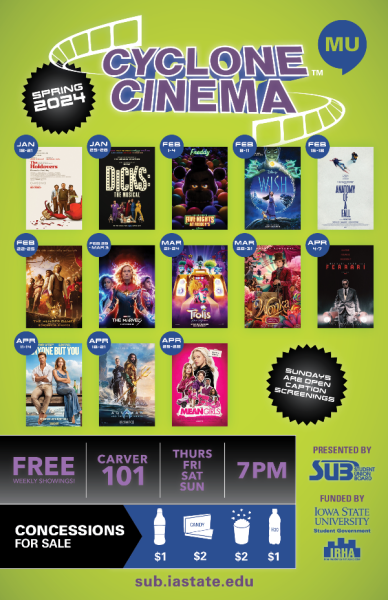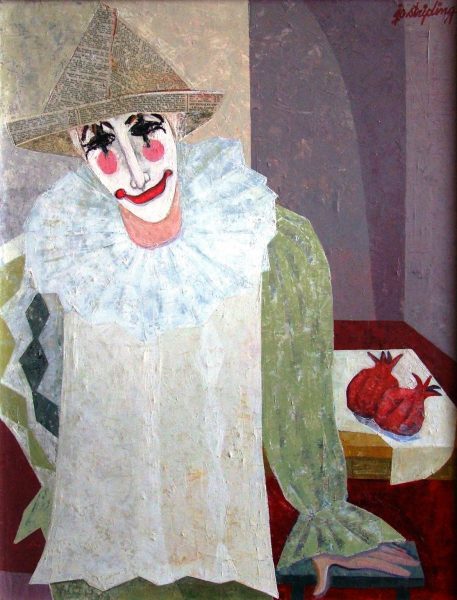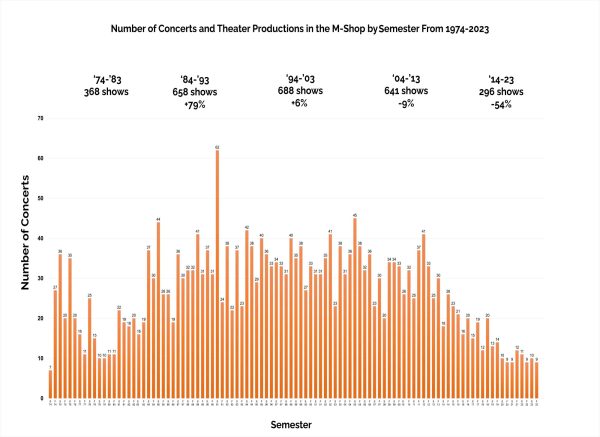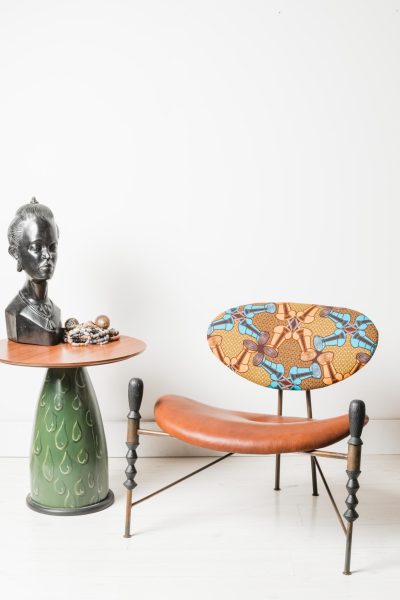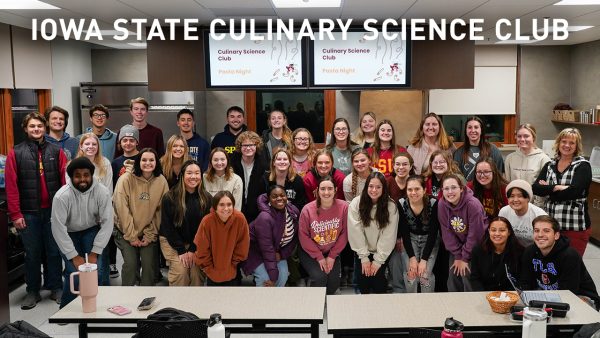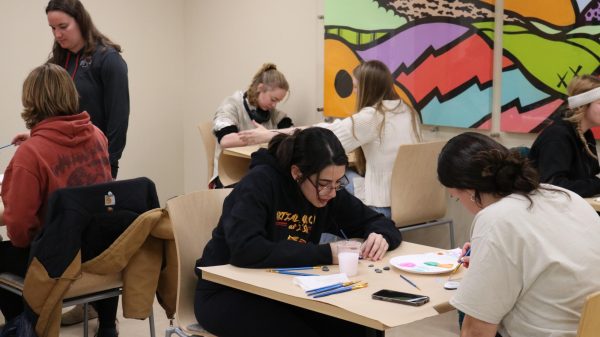What media gets wrong about Asian Americans
Courtesy of Jason Leung on Unsplash
Asian Americans are often misrepresented in popular culture and media.
May 2, 2022
Asian American misrepresentation throughout history may have perpetuated harmful stereotypes in popular media and culture.
False depictions of Asian American men and women are spread through pop culture and anti-Asian laws, tracing back to the 1800s. Tragedies could stem from this misrepresentation.
Celine Parreñas Shimizu, dean of the arts and distinguished professor of film and digital media at the University of California Santa Cruz, discussed how Asian women are represented.
Shimizu said Asian women are portrayed as hypersexual, yet they are also represented as less valuable compared to a white woman, serving others rather than themselves.
Rena Heinrich, an assistant professor of theatre practice in critical studies at the University of Southern California, discussed the “femme fatale” trope.
The “femme fatale” comprises two stereotypical types that Asian women face.
“First, the lotus blossom, which is the geisha, subservient, docile, hypersexual female figure,” Heinrich said. “The other is the dragon lady, which is a woman who is malevolent, who will use her “feminine wiles” to entrap men often to their demise, and she is also hypersexualized and will use that sexuality for evil.”
Novotny Lawrence is an associate professor in the Greenlee School of Journalism and Communication, specializing in race, film, media and popular culture studies.
Lawrence explained that East Asian men are predominantly portrayed as sexless and undesirable to women across ethnic backgrounds. He said this false portrayal is perpetuated through the media where we rarely see East Asians as the object of desire or lead.
Heinrich stated that historically, Asian men tend to be seen as effeminate because they’re represented working as cooks, nannies and cleaners.
However, in contemporary times, Asian men have also started to be seen as martial artists due to Bruce Lee.
“Certainly, Bruce Lee was instrumental in changing that perception which I think was good. But then as of late, you start to see you know, men only can have virility or strength via martial arts,” Heinrich said. “So it’s almost like those are the only two options that are available.”
The Chinese Exclusion Act and Page Act of 1875 contributes to these false beliefs of Asian Americans.
According to HISTORY, The Chinese Exclusion Act was a significant law restricting the influx of Chinese immigrants to the United States. The Page Act of 1875 specifically excluded Chinese women on the notion that they were prostitutes.
Heinrich stated that these anti-Asian laws absolutely contribute to the way people look at women of Asian descent
“What happens as a result because of the Page Act and because we restrict women, then we have a bunch of Chinese bachelors who are living together because they can’t start families,” Heinrich said. “They’re not allowed to marry folks who are not of Asian descent, and they can’t actually engage with what Western Society would deem kind of normal behavior.”
Heinrich, Lawrence and Shimizu emphasized the importance of viewing issues through the lens of intersectionality and orientalism.
The Center for Intersectional Justice defines intersectionality as, “the ways in which systems of inequality based on gender, race, ethnicity, sexual orientation, gender identity, disability, class and other forms of discrimination ‘intersect’ to create unique dynamics and effects.”
Orientalism is a concept by scholar Edward W. Said.
“The way orientalism works is that it tends to pit the East against the West,” Heinrich said. “If the West is considered strong, the East would be seen as weak. If the West is considered masculine, then East is considered feminine.”
When you have orientalism conditioning the culture in a certain way, Heinrich said it makes sense that the product of that culture continues to misrepresent Asian Americans.
Because race and gender are entwined and intensify each other, dangers such as the 2021 Atlanta spa shooting occur.
The suspect claimed the shooting was to get rid of his sex addiction instead of being racially motivated. However, intersectionality and orientalism explain why there is an association.
“It wasn’t just about a woman or a feminine body. It was about a specific feminine body that was of a specific racial background,” Heinrich said.
Heinrich said it links back to early representations of Chinese women. She said if you have these misconceptions about Chinese women as hypersexual and feel like you need to eradicate that, then it’s targeted.
There are a few ways to combat misrepresentation and potential tragedies.
Lawrence said you have to become aware of your implicit biases and accept that you have them; he said it’s more work to deny it than to own it and try to be better.
Shimizu stressed the importance of diversity.
“We need to recognize that very few people who are not white men have access to the means of representation,” Shimizu said. “88% of critics are white men, so even the people who provide us the framework for understanding what it is that we’re seeing on screen come from a limited demographic, so we need more equal access to representation.”
Shimizu stated that we need to acknowledge that Asian Americans have been fighting misrepresentation for over one hundred years, making movies that directly try to overturn that harm.

